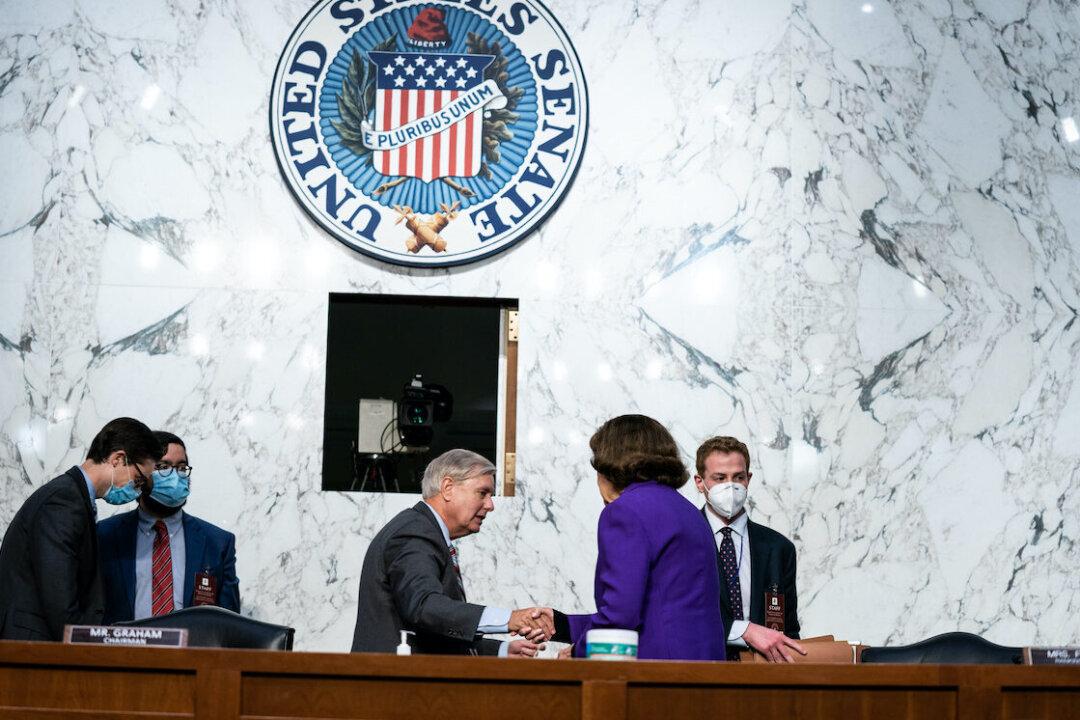Senate Judiciary Committee Chairman Lindsey Graham (R-S.C.) announced on Oct. 19 that the committee will consider subpoenas for the CEOs of Twitter and Facebook for testimony about the recent censorship of New York Post alleged exposés on Hunter Biden, the son of Democratic presidential nominee Joe Biden.
Committee staff are negotiating voluntary appearances by Twitter CEO Jack Dorsey and Facebook CEO Mark Zuckerberg, according to a statement from Graham. Should discussions for voluntary appearances fail, the committee will vote to authorize subpoenas. The issue is on the committee’s agenda for Oct. 22, which is also the day when the committee will hold the highly anticipated vote to recommend Judge Amy Coney Barrett’s Supreme Court nomination to the full Senate.





